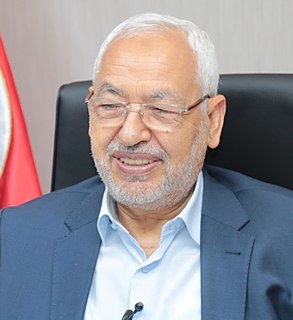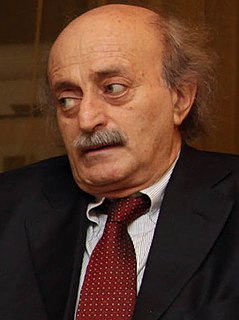A Quote by Rashid al-Ghannushi
There are common denominators that unite all members of al-Nahda: There is no one in al-Nahda who doubts about Islam There is no one in al-Nahda that believes in extremist views of Islam.
Related Quotes
Muhammad divided the world in two sectors. One he called Dar us Salam (House of Peace) and the other, Dar al Harb (House of War). All countries, where Islam is not the ruling authority, are Dar al Harb. It is the duty of the Muslims to wage Jihad in Dar al Harb, overthrow the governments and force people into submission. This is the only kind of peace that Islam recognizes.
The ironic factor that is between the Houthis and al-Qaida, that is, they both have strong anti-American sentiment. For example, the slogan of the Houthis is death to America and death to Israel and God curse the Jews and victory to Islam. And besides that, there is very little in common between al-Qaida and the Houthis as far as ideology goes, but they see themselves as having a common enemy, which is America. And America is in a situation, where the Houthis are fighting al-Qaida quite viciously on the ground, yet now the Americans are allied with Saudi Arabia in strikes against the Houthis.
Some Pakistanis fought for the Taliban. Pakistani extremist groups provided infrastructural support to Al Qaeda. There was a coming and going of Al Qaeda militants and leaders between Afghanistan and Pakistan for several years. All that has really happened is that Al Qaeda has escaped from Afghanistan come into Pakistan, got in touch with their contacts and friends in these extremist groups, which then provided them with safe houses, cars, and not just in the border areas but also in the cities. Rooting out Al Qaeda in Pakistan now is where the main battle is being fought.
From it genesis twelve hundred years ago to today, Islamic philosophy (al-hikmah; al-falsafah) has been one of the major intellectual traditions within the Islamic world, and it has influenced and been influenced by many other intellectual perspectives, including Scholastic theology (kalam) and doctrinal Sufism (al-ma'rifah or al-tasawwuf al-'ilmi) and theoretical gnosis ('irfan-i nazari).
In Islam, we believe that it is God himself who is the ultimate guide - Al Hadi - one of the names of God is Al Hadi, the Guide. But at the same time, God has provided within the Islamic revelation the possibility of spiritual guidance through human beings, because then everyone can have direct access to God.
Alas, Islam turned against science in the twelfth century. The most influential figure was the philosopher Abu Hamid al-Ghazzali, who argued in The Incoherence of the Philosophers against the very idea of laws of nature, on the ground that any such laws would put God's hands in chains. According to al-Ghazzali, a piece of cotton placed in a flame does not darken and smoulder because of the heat, but because God wants it to darken and smoulder. After al-Ghazzali, there was no more science worth mentioning in Islamic countries.





























